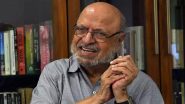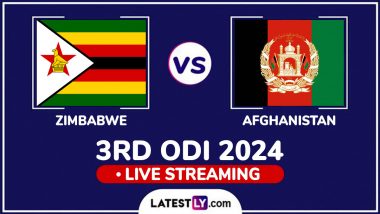Washington, Feb 9 (PTI) The United States is seeking a peace agreement and not an agreement to withdraw its troops from war-ravaged Afghanistan, the Trump Administration has said.
Weeks after initiating direct talks with the Taliban, wherein the two agreed on a framework of peace agreement, Trump Administration's point person Friday told a Washington audience that these were just a few steps in the direction of peaceful resolution of the conflict in Afghanistan and that they have a long way to go.
And this cannot be achieved without the help of regional players, in particular Pakistan, Special US Representative Zalmay Khalilzad said in his maiden public appearance before a Washington audience some six months after he was entrusted with this task by the Secretary of State Mike Pompeo.
"My overall goal is, at the direction of the president of the secretary of state, not to seek out withdrawal agreement, but the peace agreement. Because peace agreement can allow withdrawal. It is not just the withdrawal agreement that we are seeking," Khalilzad said.
The veteran American diplomat in his appearance before the US Institute of Peace (USIP) said that to achieve a peace agreement, quite a number of issues have to be dealt with.
"We have tried to develop a long agenda of issues that must be addressed. Initially, we have focused on two issues, one on the issue of counter terrorism and the other the issue of us forced withdrawal," he said.
"After many conversations, we have reached an agreement in principle with the Taliban on a framework that would provide guarantees, and enforcement mechanism that no terrorist group, international terrorist group or individuals would be able to use Afghanistan, the areas that they control and should they be part of a future government; against the United States as allies and others," Khalilzad said.
"We will engage with Taliban further to flush out these commitments that they've made," said the Afghan-born US diplomat who was the highest ranking Muslim American in the Bush Administration in his capacity as the US Ambassador to the United Nations.
He also served as the US Ambassadors to Afghanistan and Iraq during the Bush Administration.
"Our hope is, our expectation is that once interact can dialogue begins, which is our key objective, that these parallel discussions will be brought together," he said.
"Even if we achieve success on these two issues, we make further progress, a peace agreement would not be, immediately or shortly are achieved in the foreseeable future without a comprehensive agreement on other issues," he added.
Nothing is agreed to until everything has been agreed to and the other issues that must be dealt with are issues of a roadmap for Afghanistan political future to end Afghan war.
The Afghans, he asserted, must sit across the table with each other and come to an agreement about their future of their country.
“All sides tell me that I've talked to that they've learned lessons from the past. That previous governments whether it was a Taliban government or others that dominated Afghanistan and impose its a unique vision by force on others have been a failure. So, the time has come, they say for an inclusive dialogue leading to an inclusive piece,” he said.
That would not be easy, he acknowledged.
The Us has offered to do what it can to be helpful if help is needed, but it's for the Afghans to decide and it's for the Afghans to have the conversations, to negotiate with each other.
The US cannot be a substitute for decisions that they must make.
“We will speak loudly and clearly for the values that we have, the values of human rights, value of freedom, of the press, women's rights, all that we stand for,” he said.
“We'll make sure that they understand that for having a positive relationship in the future with the United States, those values must be respected, those values must be responded to,” he said.
Noting that Afghanistan today was very different than the Afghanistan of 19 years ago, Khalilzad said that it's a different country and it will take time for the Taliban perhaps to appreciate that.
“But the message that they have given me is that they understand that they cannot go back. We don't trust the words of any of the protagonists as such anywhere, but we will do what we can to facilitate it. We would be helpful and be watchful,” he said.
Khalilzad said he would ideally have the peace deal before the upcoming presidential elections in Afghanistan.
Noting that there is reluctance on the side of the Taliban to sit down with the government to negotiate the future, he expressed hope that he will dedicate his time to help overcome that challenge.
In addition to the United States, he said the region has a big role to play in Afghanistan.
“The roots of the conflict in Afghanistan is not only in Afghanistan but also in the broader region. I have said to the regional players that we seek their cooperation, their participation, their facilitation to assist Afghanistan to come to the peace table and to make an honorable, just peace with each other,” he said.
Khalilzad said that he has talked to all the neighbours of Afghanistan, perhaps the exception of one or two, but they have not yet agreed on a formal framework for regional participation.
“There is a number of regional initiatives that are out there. We look forward to coming to some understanding on the shape of a regional or a gathering that could facilitate and participate in the finalization of the peace agreement," he said.
"But we don't have to wait until then for regional players to play a positive role. They can already play a positive role," he added.
Khalilzad said the timing of a peace settlement from American point of view was sooner the better.
"It will be better for Afghanistan if we could get a peace agreement before the election, which is scheduled in July," he said.
"We would prefer to see a peace agreement before July to bring the Taliban also into the process so that the peace agreement would a facility that peaceful election or a framework for proceeding with regards to the future of Afghanistan,” he added.
(This is an unedited and auto-generated story from Syndicated News feed, LatestLY Staff may not have modified or edited the content body)













 Quickly
Quickly





















